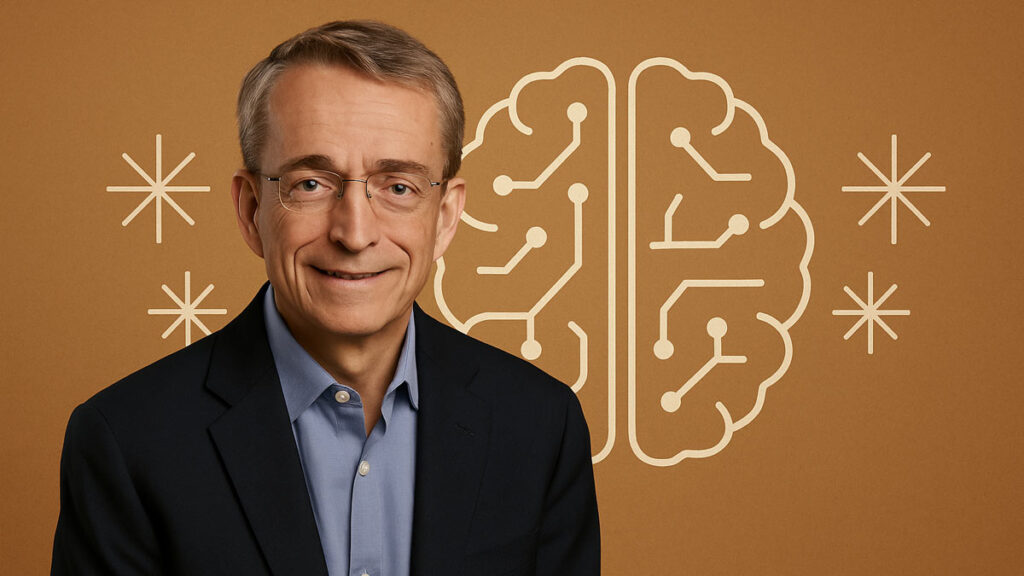Former Intel CEO Pat Gelsinger has launched Flourishing AI, a new benchmark that evaluates artificial intelligence systems based on human well-being and ethical values.
Quick Summary (TLDR):
- Pat Gelsinger introduces Flourishing AI to measure how well AI aligns with human values.
- Developed with faith-tech firm Gloo, it includes metrics like happiness, character, and spirituality.
- Inspired by Harvard and Baylor’s Global Flourishing Study, the benchmark fills a gap in current AI assessments.
- The initiative aims to help organizations embed ethics into everyday AI applications.
Why does this matter? Because today’s AI models are smart, but are they good for us? Gelsinger thinks it’s time we asked deeper questions about purpose, morality, and well-being. And now he’s created a tool to help us find the answers.
Gelsinger’s Next Chapter: Aligning AI with Human Flourishing
After stepping down from Intel in December, Pat Gelsinger didn’t head for retirement. Instead, he’s turned his focus to a profound challenge: ensuring artificial intelligence helps humans not just function, but flourish. His answer? Flourishing AI, a newly launched benchmark that evaluates large language models (LLMs) on values like character, happiness, purpose, and even faith.
Developed in partnership with Gloo, a “faith-tech” company Gelsinger backed over a decade ago, Flourishing AI goes beyond the traditional yardsticks of speed and accuracy. It incorporates seven core dimensions derived from academic research and spiritual insight:
- Character and Virtue
- Close Social Relationships
- Happiness and Life Satisfaction
- Meaning and Purpose
- Mental and Physical Health
- Financial and Material Stability
- Faith and Spirituality
This framework builds on the Global Flourishing Study, an extensive survey conducted by Harvard and Baylor University, but extends it into the digital realm of machine intelligence.
Faith Meets Function in Artificial Intelligence
What sets Flourishing AI apart is the inclusion of spirituality as a measurable component of AI assessment. While many AI ethics frameworks emphasize fairness, transparency, and privacy, they often avoid subjective or moral considerations.
“I’ve lived at the intersection of faith and tech my entire life,” Gelsinger told The New Stack, underscoring that this effort is as much personal as professional. The benchmark is designed not just to evaluate what AI can do, but to ask whether it aligns with what AI should do.
A New Kind of Evaluation Standard
Flourishing AI arrives at a pivotal moment. Despite widespread adoption of ethical AI principles, few organizations provide clear implementation paths. A 2024 survey revealed that while more than 70 major digital companies claim to follow ethical guidelines, fewer than one-third actually detail how they do so.
This lack of clarity has opened the door for tools like Flourishing AI to step in. Its research-based model offers a way to embed emotional and relational intelligence into AI evaluation. It’s a shift from metrics that focus on task efficiency to those that center human impact.
Industry Shift Toward Values-Based AI
Gelsinger’s move is part of a growing trend. From corporate AI ethics boards to the United Nations’ Global Digital Compact, institutions are increasingly recognizing the need for standardized governance around AI’s social and ethical impacts.
But real progress requires more than declarations. It requires tools that help bridge idealism and practice. Flourishing AI could be one such tool, offering a grounded yet visionary framework for aligning AI with the core components of human dignity and purpose.
TechKV’s Takeaway
I love where this is headed. For too long, we’ve measured AI by how fast it responds or how much data it can digest. But what about whether it makes life better? Gelsinger’s Flourishing AI is a rare breath of fresh air in a field that badly needs moral clarity. It doesn’t just ask “Is the model right?” It asks, “Is the model good?” That’s a question every tech company should be wrestling with right now.
